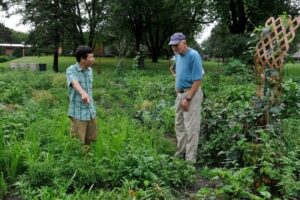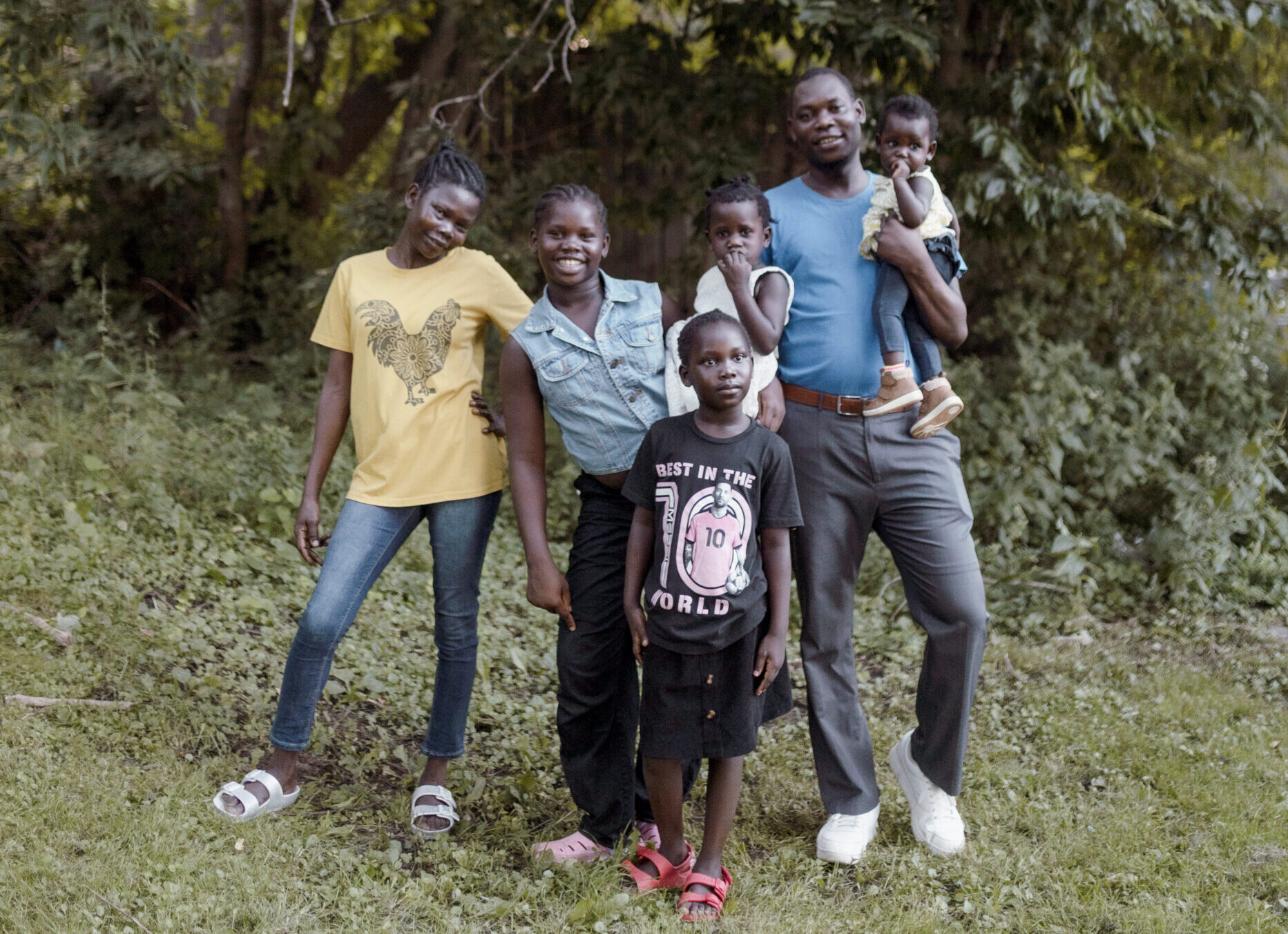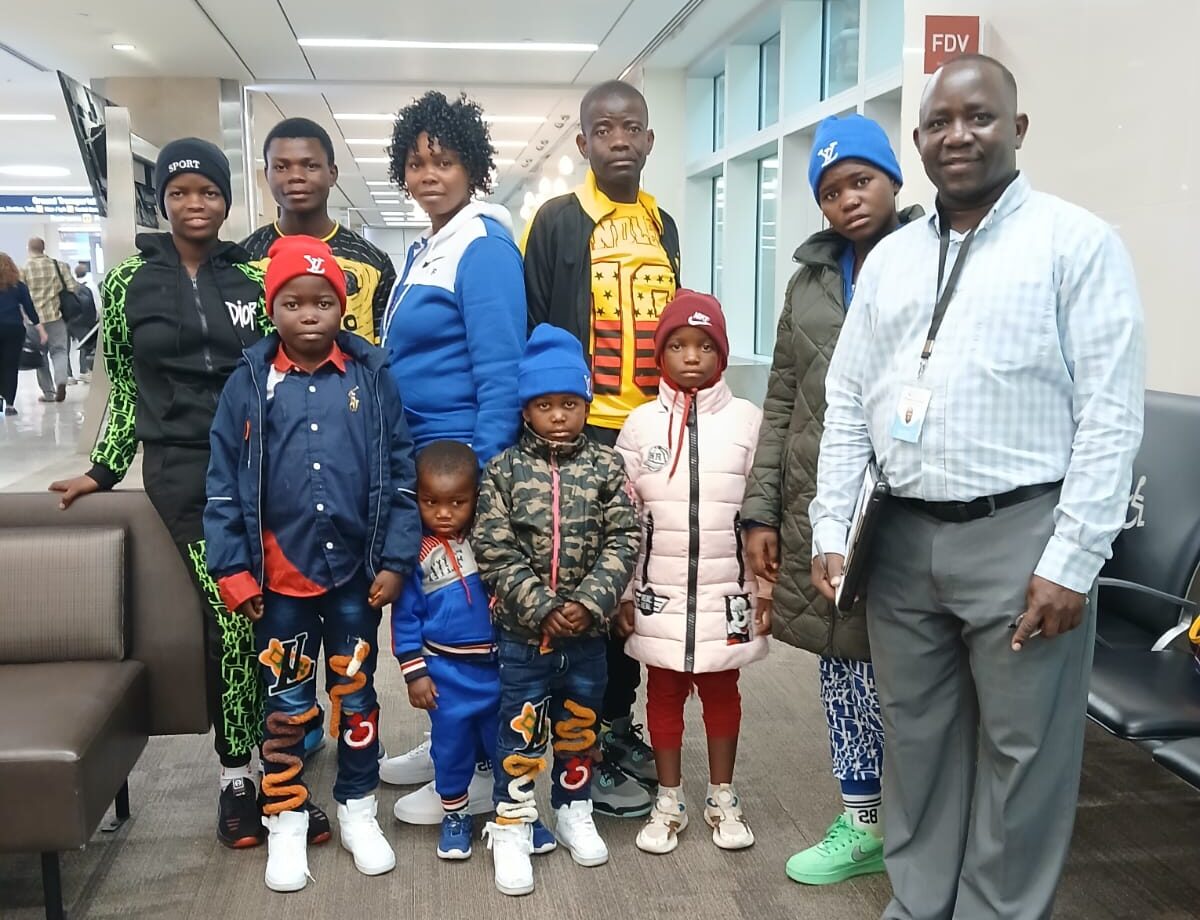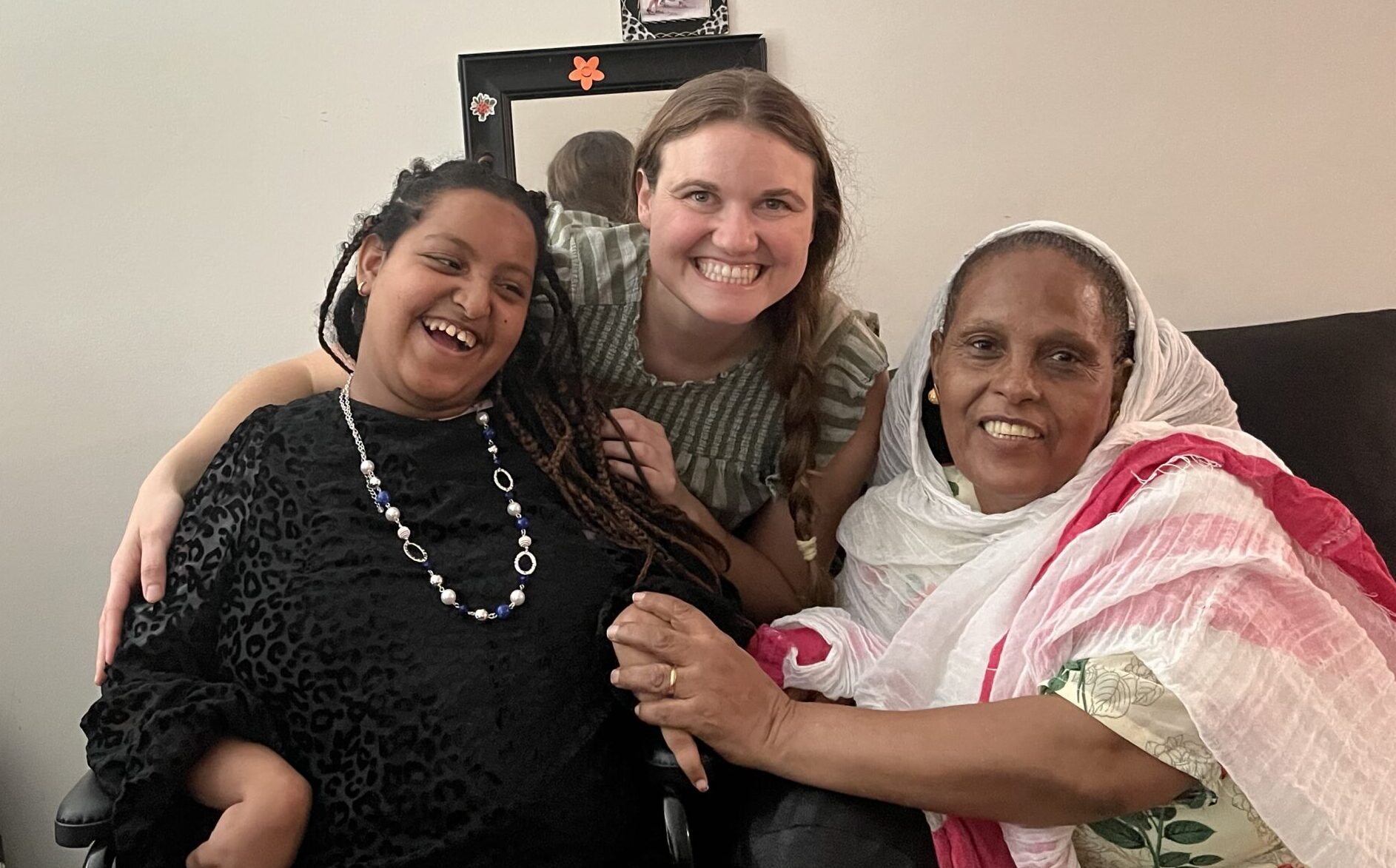During this time of social distancing due to COVID-19, starting a church refugee garden might be an ideal way to support and love our refugee neighbors.
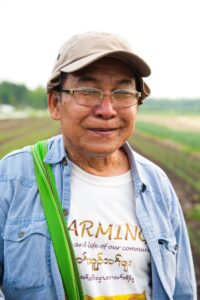
How would you feel if you were a farmer, and suddenly, you were landless? Feeling a lack of purpose, connection, even depression would all make sense. These feelings are all too common for refugees, many of whom were involved in working the land back home, and who are now renting apartments in the Twin Cities during this time of COVID-19.
“We know that this is a scary time, however we can also imagine what an extra difficult time it is for our immigrant and refugee friends. Think about how much more a garden can mean to them now? We hope that local churches can provide that refuge for our friends,” said Dennis Murnyak, Church Refugee Garden Director.
“As a refugee, I receive, receive, receive… But after a while of gardening, I have grown cucumbers, and I am going to give them to my friend. I feel like a full human again because I can give and not just receive.”
Church gardens can still safely operate this year while allowing for appropriate social distancing, putting up signage, and enforcing recommended hygiene practices such as: frequent hand washing, providing gloves, advising gardeners not feeling well to stay away from the garden, cleaning and sanitizing surfaces. Because even in a time of social distancing, we all deeply desire connection.
“I think gardening is one of the best ways to bring humans together,” says Darby Laing of New Life Presbyterian Church (NLPC) in Roseville, MN. “When you participate in a community garden, there are two parts: there’s the gardening, and there’s also the community, which keeps us doing what we’re doing.”
Galilee Lutheran Church in Roseville, MN, is a small urban congregation with a big garden made possible through a partnership with the city of Roseville to borrow unused land across the street from their building, this lead to the creation of the Rice Street Community Garden.
“In community gardens, people can be empowered here. They are in control, growing their food. The sun is shining. They are really beginning to heal after trauma”
Pastor Dana Nelson of Galilee Lutheran Church tells of a refugee gardener who shared the deeper meaning of her first harvest season:
“As a refugee, I receive, receive, receive. I need help to rent an apartment, help to get my kids in school, I need help to get clothes, I need help to get a driver’s license. But after a while of gardening, I have grown cucumbers, and I am going to give them to my friend. I feel like a full human again because I can give and not just receive.”
Though depression is common among refugees, the garden provides a place of respite.
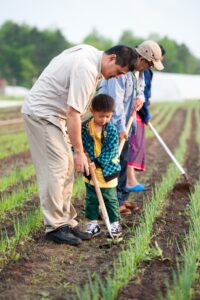
“In community gardens, people can be empowered here,” says Nelson. “They are in control, growing their food. The sun is shining. They are really beginning to heal after trauma.”
Volunteers from First Free Church Maplewood are encouraged to walk the garden, hand out water bottles, and talk with gardeners, resulting in a rich network of relationships.
“The refugees we talk with have incredible stories of survival,” says Jon Addington, an elder at First Evangelical Free Church (FEFC) in Maplewood, MN. “And many share our (Christian) faith. We’re very interested in each one of their faith journeys, because we’re on a faith journey too.”
Would you like to be part of a ministry that provides a space of healing, personal empowerment, social connection, and hope for refugees? Consider cultivating a community garden! It doesn’t have to be big.
“Some churches have 1,000 plots, some have 10!” says Dennis Murnyak.
If you would like to get advice on how to start a church refugee garden in your area, contact Dennis Murnyak.
Portions of this article first appeared in the Presbyterian Church in America’s March 2020 edition of Mission to North America’s Refugee and Immigrant Ministry Newsletter. You can find more work by the author, Jessie Udall at lovingthestrangerblog.com.
https://arriveministries.org/refugee-church-gardens/


